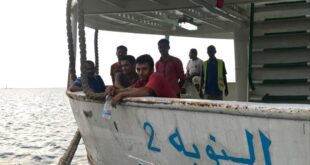During his first official visit to Moscow under the military rule in Mali, Abdoulaye Diop, Minister of Foreign Affairs and International Cooperation, held extensive discussions with his counterpart, Foreign Minister Sergey Lavrov. The discussions on November focussed on increasing bilateral cooperation in economic sectors. But particularly significant was Russia’s military assistance to strengthen the position of the new government and to fight rising terrorism in the Sahel region.
Lavrov reaffirmed commitment to further develop the long-standing military-technical cooperation and military ties. Several agreements to this effect have been signed in recent years. “We will fulfil them, including by supporting the Malian government’s efforts to ensure the country’s defence capabilities, which is especially relevant in the face of the persisting terrorist threat,” he said during the media conference.
“We do understand the need to reinforce Mali’s counter-terrorism potential. In this connection, the Russian state supplies the necessary equipment, weapons and ammunition. The risk of a power vacuum in the country’s north should not be allowed to materialise in the wake of the decision by our French colleagues to withdraw part of their troops from Mali and close three of the five military bases in regions with the most active terrorist groups,” he added.
Lavrov explained that terrorist groups have been increasingly active, especially in the north of the country, and therefore does not offer a favourable environment for launching an election campaign. This threat exists and could become more acute following the decision of the French government to considerably reduce its military presence in Mali (Operation Barkhane), especially in the north of the country where terrorists feel increasingly relaxed.
As for the nervous reaction of the French and some other Western representatives to Mali’s plans to work with a private military company from Russia in the past few months (something the Prime Minister of Mali spoke openly about at the UN General Assembly session), the decision is exclusively within the competence of the lawful Malian government.
On November 12, Russian top diplomat Sergey Lavrov and defence chief Sergey Shoigu held a meeting with their French counterparts in Paris. According to Vedomosti, local Russian business and financial newspaper, Paris has repeatedly expressed concern about Russia’s activities in the region that France considers to be its backyard.
In June, Paris announced plans to significantly reduce its participation in a counterterrorism operation in Mali and its neighboring countries, which had been launched in 2014. In August, news came that Mali’s authorities had launched talks with the Russian private military company Wagner Group that could replace the French military. Reuters reported that a possible contract could be worth $10.8 million a month.
In an interview, Grigory Lukyanov, a Senior Researcher at the Russia’s Institute of Oriental Studies, explained that the current goal is to boost business ties, particularly in the field of resource extraction and security services, where Russia has competitive advantages. In the future, Mali is capable of becoming a transport hub for commodities coming from the west and south to Africa’s north and then to the European Union, so apart from France, China and the United States are also interested in it. It’s vital for Paris to remain in its former colony and France is reluctant to let other players enter the country.
According to Lukyanov, France views the region as the former outskirts of its empire, while for Russia, Mali is a shady remote country and Moscow could trade activities there for a number of concessions related to other issues, crucial for its relations with France, the EU and the West in general. As far as Paris is concerned, it will most likely replace the current Malian government, which is sending pro-Russian signals, with another one that will better suit its goals.
As well-known facts, two military coups have taken place in Mali since August 2020. The first one, which occurred on August 18, 2020, ousted President Ibrahim Boubacar Keita. Interim President Bah Ndaw was removed from power by the military on May 26, 2021, while Deputy President Assimi Goita became Mali’s Transition President based on the Constitutional Court’s order.
There have been discussions at the United Nations Security Council, African Union, and the Economic Community of West African States (ECOWAS) about rivalry and competition for influence between France and Russia in Mali. The Economic Community of West African States, the regional bloc, has already suspended its membership and imposed a number of sanctions against Mali’s transitional leaders after they informed the organisation they would not be able to hold presidential and legislative elections next February.
It reiterates the need to adhere to the transition timetable in respect of the elections scheduled for February 27, 2022 and calls on the transition authorities to act accordingly to ensure expeditious return to constitutional order. Accordingly, it calls on the international community to take the necessary measures to ensure that the transition authorities respect their commitment to an expeditious return to constitutional order.
The African Union, Economic Community of West African States (ECOWAS) and foreign organizations such as the European Union (EU) and the United Nations (UN) have requested a quick transition to a civilian government. They further urged that efforts are taken to resolve outstanding issues relating to sustainable development and observing strictly principles of democracy.
The Republic of Mali, home to nearly 20 million people, is a landlocked country located on rivers Senegal and Niger in West Africa. As a former French colony, it persistently faces serious development challenges primarily due to its landlocked position and it is the eighth-largest country in Africa. Over the years, reform policies have had little impact on the living standards, majority highly impoverished in the country. As a developing country, it ranks at the bottom of the United Nations Development Index (2020 report).
 Eurasia Press & News
Eurasia Press & News



